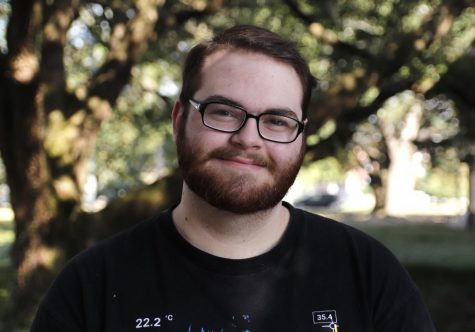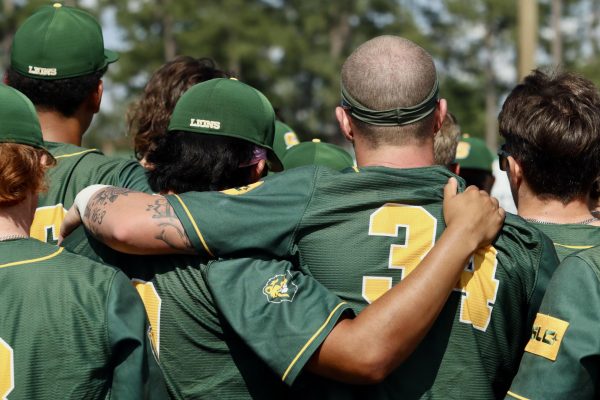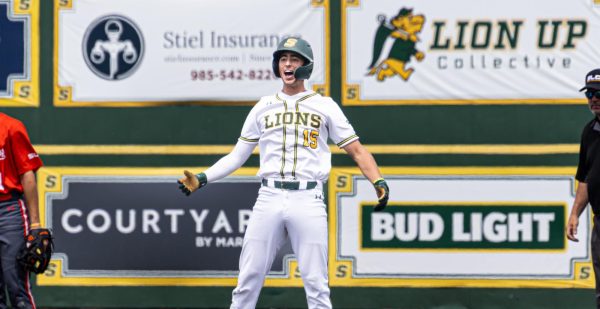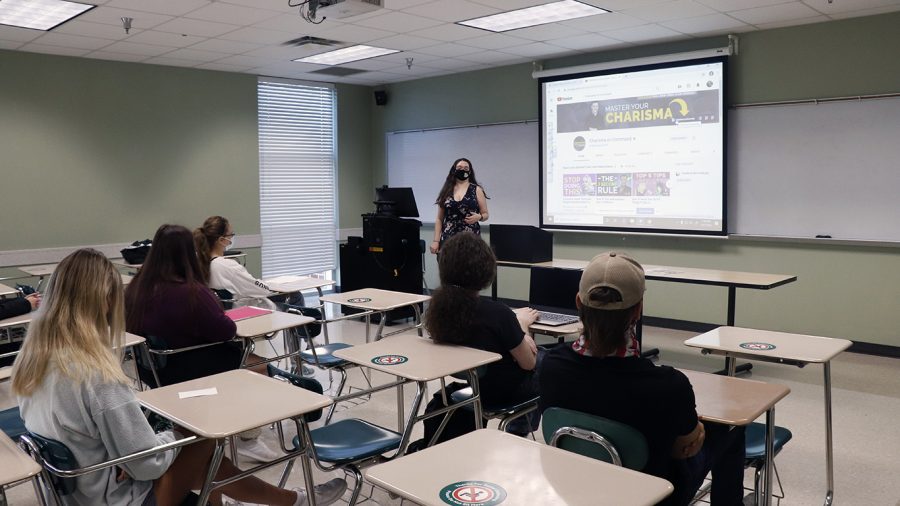Q&A with an education professor: Teaching during the pandemic
Brynn Lundy/The Lion’s Roar
Education is one of the fields that has had to shift their means of operation during the COVID-19 pandemic. Students have also had to adjust their methods of observing and teaching in K-12 schools.
With the pandemic still at large, teachers have faced major changes in the way they teach and have learned to adapt to the situation.
Dr. Colleen Klein-Ezell, department head and professor for the department of teaching and learning, answered some questions regarding the department and teacher residents’ responses to these changes.
As a career path solely focused on interaction, how did things change?
“In preparing for the COVID-19 pandemic transition to virtual/remote learning, faculty worked tirelessly to plan what the remaining of the semester would like for our teacher candidates’ field experiences and student teaching/residency. The entire faculty came together and made consistent plans to provide meaningful field experiences for our teacher candidates that would reinforce class learning during the P-12 school closures. When our P-12 schools closed, all face-to-face professional development activities were canceled. At that time, all professional development activities and field experiences (including student teaching/residency) shifted to virtual.”
What are some of the other major things in the field of education that changed?
“All of the new teacher candidate expectations were posted on our Education Majors Moodle page with videos to outline expectations and protocols for the virtual opportunities. In lieu of face-to-face field experiences in the P-12 schools for our teacher candidates, video-based observations were approved to fulfill the required field experience hours. Faculty worked with the teacher candidates to maintain high standards in coursework, professional development and field experiences, as they were all experiencing the effects of the pandemic together.”
How has the education department navigated through these major changes during the times of the pandemic?
“At the beginning of the shutdown, teacher residents (student teachers) were allowed to support their school sites with their mentor teachers. All districts and school sites confirmed that, ideally, residents would continue. ‘Residents were literally begging to continue in the field to support mentors. In retrospect, this was a great learning opportunity for them, and the districts wanted them there,’ said Mrs. Jordan Ahrend, director of clinical practice and professional development. Once student teaching was ‘suspended until further notice’ due to COVID-19, teacher residents continued to work with their school mentor teacher in providing instruction and activities for their P-12 students. They remained in contact with their university site coordinator and Southeastern instructors.”
Do you think that the current curriculum for student-teachers has prepared them to adapt and be flexible?
“Teacher residents in their final semester had completed their third evaluative cycle and were on their way to completing an entire year of teaching experience. By mid-March, our teacher residents had a strong foundation and were very prepared for the classroom.”
What kind of lessons do you think student-teachers will learn from this pandemic?
“The Spring 2020 semester was a great learning experience for our teacher residents, teacher candidates and education faculty. Everyone was impacted in some way from the pandemic shutdown. We all learned how to support our students, both the students in the P-12 classrooms and the students at Southeastern. We learned the true meaning of flexibility and resilience. Because of this experience, teacher candidates have the confidence to know how to proceed in similar situations and take teaching day by day in supporting their students. In October 2020, the College of Education learned of their grades of ‘A’ of clinical practice and classroom management, released in the National Council for Teacher Quality (NCTQ) 2020 Teacher Prep Review, naming Southeastern’s undergraduate and graduate elementary teacher preparation program among the top in the country. We are among only 17 elementary programs in the country with this distinction and serve as a model of excellence.”
Your donation will support The Lion's Roar student journalists at Southeastern Louisiana University.
In addition, your contribution will allow us to cover our annual website hosting costs.
No gift is too small.

Austin Dewease is a communication major from Slidell. He has been a staff reporter with The Lion’s Roar since March 2020. Austin has a passion for filmmaking,...




